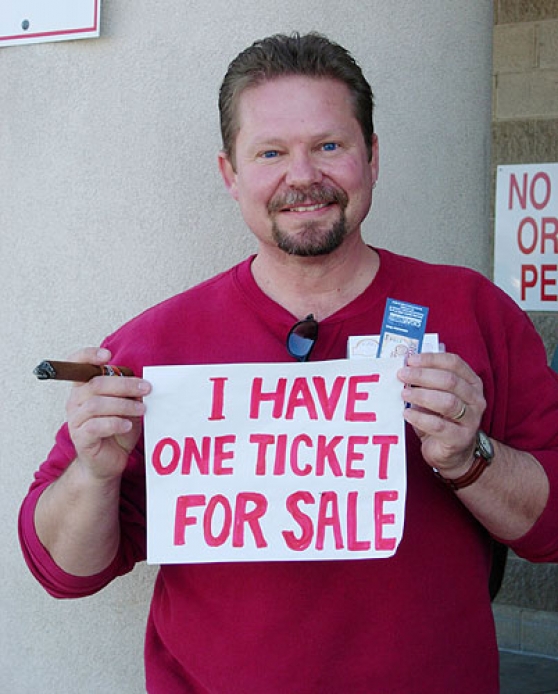Its been two years now since the New York State government relaxed their ticket scalping laws. With the change in law came a change in the ticket scalper. No longer is it that out-of-place looking fella out in the parking lot, in 2009 the ticket scalpers are the ticket companies themselves.
Today the New York Times reported:
U2’s show on Sept. 24 at Giants Stadium in East Rutherford, N.J., was an “instantaneous sellout” through Ticketmaster on Monday morning, according to the promoter, Live Nation. Just as quickly, however, thousands of listings flooded any-price-goes sites like TicketsNow.com, a Ticketmaster subsidiary where fans and brokers flip tickets, often at prices far above face value. One seller was asking $10,000 for a $253 seat near the stage.
Two years after the repeal of New York State’s decades-old anti-scalping laws, the ticket marketplace has become a fiercely competitive game in which major corporations compete over resale prices with the fan next door, scalpers have a Washington lobbyist and thousands of tickets disappear in a fraction of a second.
[...]
And the churning secondary market has muddied long-held beliefs in the concert industry about what constitutes fair trade.“It’s a free-for-all,” said Arthur Fogel, head of global touring for Live Nation and U2’s longtime tour promoter. “When you are an artist charging $200, and you see that those tickets are getting sold for $400, and $200 is evaporating into an economy that you have no piece of, I don’t think that’s fundamentally fair. But it’s a reality we live with, no different than people illegally downloading music.”
High-profile ticketing problems have focused scrutiny on the proposed merger of Ticketmaster and Live Nation, now under review by the Justice Department.
In February, Bruce Springsteen’s fans were redirected to TicketsNow from Ticketmaster though regularly priced seats were still available. Mr. Springsteen wrote a scathing public letter, and Ticketmaster apologized, citing a computer glitch. But three weeks later, the attorney general of New Jersey, Anne Milgram, announced a settlement with the company regarding more than 2,000 consumer complaints.
When a similar glitch last fall affected Phish fans trying to buy tickets to the band’s reunion concerts in Hampton, Va., many took to the Internet with vitriol. Looking back on it, Jack Lebowitz, an environmental lawyer in Glens Falls, N.Y., who in the 1990s helped write a book about Phish set lists, turned philosophical.
“A concert ticket should be for someone’s spiritual life-enhancing experience of art,” he said in a telephone interview. “Not just another commodity, another stock or mortgage, something people flip for the biggest profit.”
New York Times:
http://www.nytimes.com/2009/04/01/arts/music/01tickets.html?_r=2


